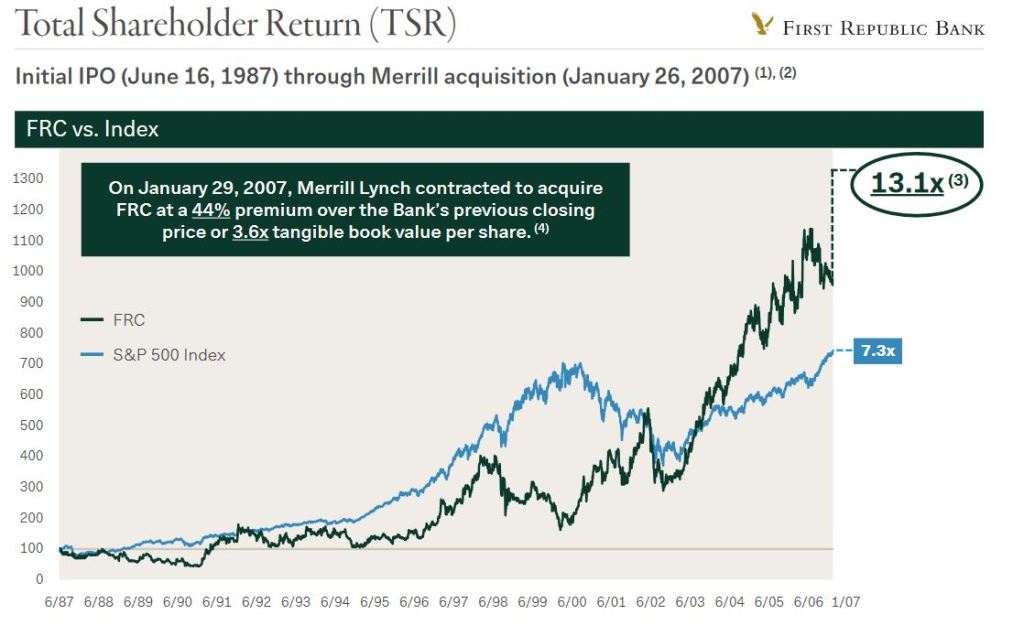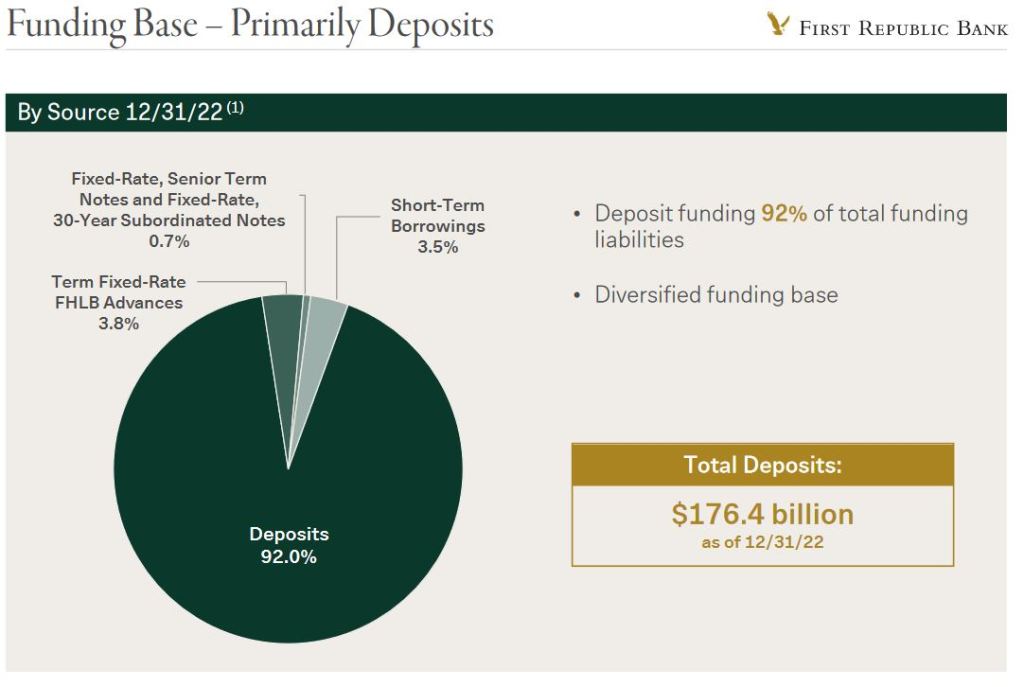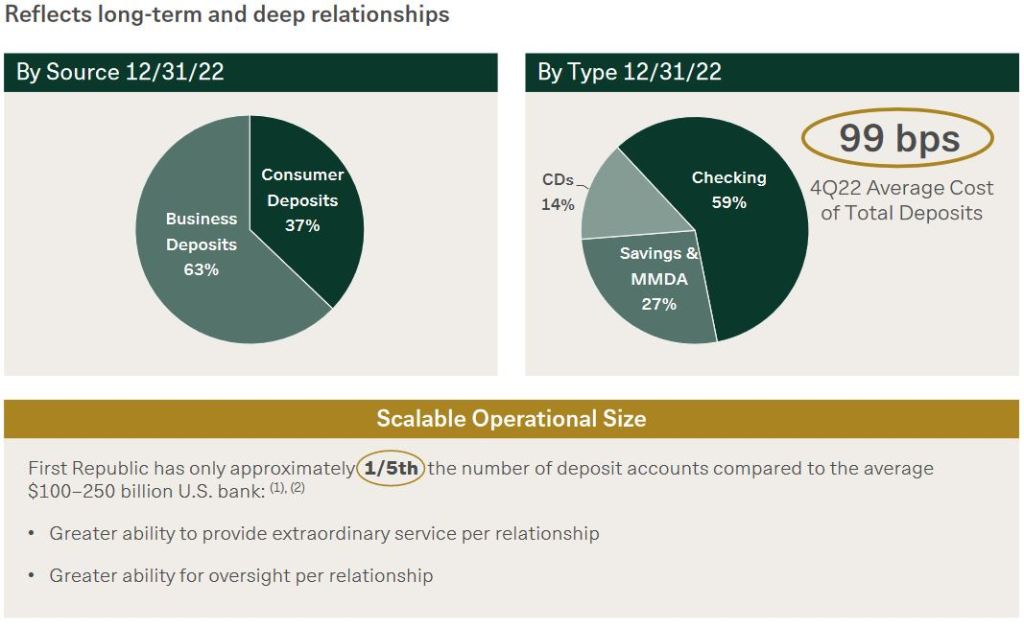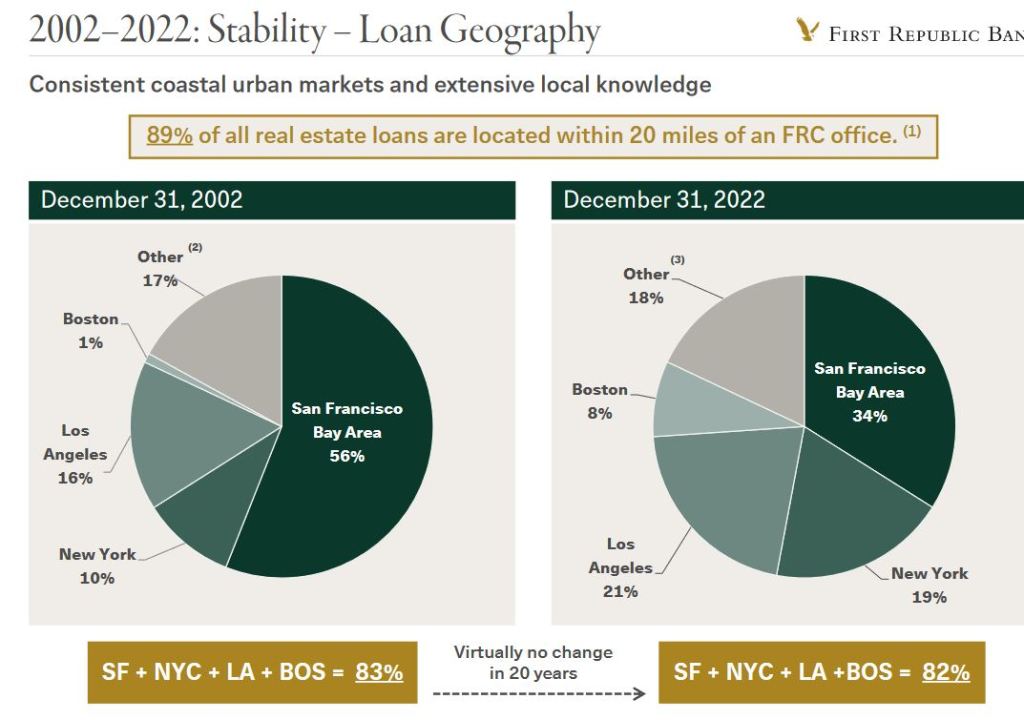We’re at present in a market the place one week appears to be already an extended time period. One week in the past I wrote about Silicon Valley Financial institution and the completely different cycles in a typical banking disaster (First liquidity, then credit score troubles).
Final week: SVB
In between, the financial institution run accellerated and SVB was then closed and rescued by the FDIC. Within the age of social media, there’s now a number of protection on this occasion accessible, personally I discovered this Odd Heaps Podcast Episode helpful in addition to Matt Levin’s take. Matt Levin additionally has a solution on why SVB was not bought over the weekend: Within the wake of the GFC, lots of the banks who purchased failing lenders had been then punished with lawsuits and evidently one thing like this might occur to SVB as effectively.
Present consensus is that SVB failed each, due to very unwise rate of interest bets on its asset aspect in addition to an unhealthy focus of its depositor base linked by a couple of huge VCs on its legal responsibility aspect. In keeping with many tales, SVB was a really energetic member of the Silicon Valley VC ecosystem and in some way the VCs (and startups) mainly killed the Goose who laid them golden eggs with this bankrun. Within the present troublesome funding surroundings, It could have made extra sense fot the VCs to assist the financial institution however I assume they had been all in panic mode.
This week: Credit score Suisse
This week, the remark of a consultant of the Saudi Funding fund led to the implosion of the share value of Credit score Suisse. Sooner or later later, the SNB and FINMA launched a press release that they are going to backstop 50 bn of liquidity necessities which for now appears to have stabilized issues to a sure extent.
Credit score Suisse – Rogue Financial institution
CS was a sluggish shifting prepare wreck ever for the reason that former McKinsey “Wunderkind” Tidjane Tiam took over as CEO in 2015. When he was fired in 2020, not solely it was revealed thaty he used personal investigators to spy on fellow board members, however extra importantly, Credit score Suisse was concerned in virtually each main fuck-up in the previous few years. Just a few examples:
- 5,5 bn USD loss with Archegos/Invoice Kwan in 2021
- 1,7 bn USD loss with Greensill
- Pushed 1 bn of Wirecard bonds into Shoppers portfolios shortly earlier than the collapse
- Was a creditor to Chinese language faux espresso chain Luckin Espresso
- CS is meant to carry not less than 80 bn USD property of criminals and corrpupt politions
Solely previously few months, the Swiss regulator brazenly critisized CS’s weak controls and in addtion, CS discovered “materials weaknesses” of their monetary reporting. For extra dangerous stuff, simply googling “Credit score Suisse scandal” offers extra outcomes on cash laundering, Bulgarian Cocaine rings and different “juicy” stuff, it’s actually unimaginable.
Trying on the CS share value, it’s fairly apparent that there’s actually no backside:

Though it’s at all times very troublesome to make predictions, I personally assume {that a} true and lasting turn-around for CS could be very unlikely. There are only a few instances in banking historical past the place a monetary establishment survived such a “clusterfuck”. Credit score Suisse wouldn’t be the primary huge identify in Banking that simply disappears. Apart from Leahman and Bear Stearns, who remembers Salomon Brothers, DLJ, Bankers Belief, Barings, Smith Barney, Chemical Financial institution, Dresdner Financial institution and all of the others ?
The almost certainly state of affairs for my part will likely be that the ring-fenced Swiss operation will in some way survive. What meaning for Bondholders and shareholders on Group stage is open, however for my part the CS shares are at greatest a “far out of the cash choice” on a really optimistic state of affairs. After all something may be traded profitably within the quick time period, however mid- to longterm, an entire lack of capital could be very possible for CS shareholders.
As we speak: First Republic Financial institution
First Republic, a “mid sized” 200 bn plus US financial institution with ~21 that banks to “Excessive internet value purchasers in costal areas” continued its plunge and stated it might be open to virtually something, together with a hearth sale with a purpose to survive.
When studying the January invetsor presentation, First Republic seems to be like an absolute success story, amongst others, their share value went up 13x since 1987, virtually 2x the extent of the S&P (i suppose ex dividends) which is exceptional for a financial institution:

Nevertheless, these slides, it turns into comparatively clear the place the issues of Republic are: Funding is usually by way of deposits:

The deposits are largely enterprise accounts and bigger measurement:

And, the Asset aspect consists largely of “coastal actual property loans” and enterprise loans to venturec Capital funds, each property that may be in bother:

It didn’t assist that the Score Companies simply downgraded First Republic to “junk” due to the weak funding construction.
To be sincere, If I’d have identified about First Republic earlier and browse the investor presentation, I may need thought of it as a possible funding. The financial institution additionally traded at uncommon excessive P/E multiples within the vary of 20-30 earnings, so only a few buyers
Subsequent week and thereafter: What may very well be the extra lasting results of this episode ?
I assume that for the following two or extra weeks, the market is “looking” for additional weak gamers and all of them will likely be backstopped by their respective Governments and Central Banks. A “Lehman second” for my part nonetheless stays a really low chance state of affairs. Nevertheless it’s also clear that this entire growth may need wider penalties.
For the banks, it will likely be much more troublesome to rework quick time period deposits into long term property, which by definition is without doubt one of the fundamental operate of the banking system. For the US, extra and more durable regulation is already on the way in which.
Amongst different uncomfortable side effects, general the present growth will almost certainly improve funding price and restrict borrowing capability for the banking sector. This in flip will make it harder for debtors to acquire or roll over financial institution loans. And if debtors are in a position to receive financial institution loans, they might want to pay greater credit score spreads. A sure improve in Company Credit score spreads was already observable previously few days.
Total this might have a siginficant affect on enterprise exercise as the supply of financial institution loans is a number one indicator for financial exercise. This in flip may then result in the second a part of the cycle, the true credit score cycle with extra defaults and many others.
Relying on how inflation charges are growing, the central banks may counter with decrease rates of interest, which nonetheless, do little to make lending simpler for the banks. After all, Governements and Central banks will attempt to counter an enormous credit score squeeze, nonetheless with out tighter credit score circumstances it’s unlikely that inflation will cool off rapidly.
I want to emphasise right here that I’m not a Macro man in any respect, however general, I believe the chance for an actual credit score cycle has elevated considerably. As a consequence, for my part one ought to restrict publicity to uncovered monetary firms in addition to companies with close to or mid time period funding necessities.

